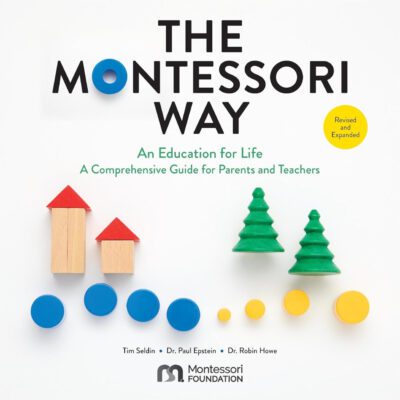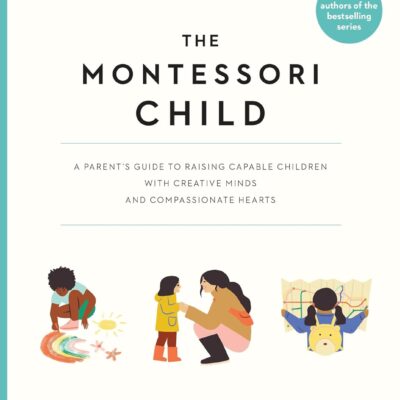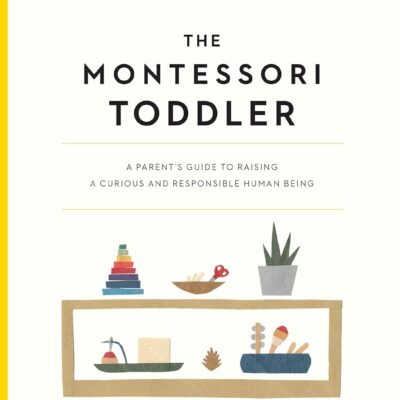
Tantrums, sibling rivalry, emotional overwhelm—these are real, and they’re hard. Any parent of a toddler or preschooler knows the sting of a grocery store meltdown or the tension of a fight between young siblings over the same toy for the third time that morning. These are not easy moments. But they’re also not unusual. In fact, they are an expected part of early childhood development.
Montessori offers a powerful reminder: your child is not giving you a hard time—they’re having a hard time. There’s a world of difference between the two. When we remember this, we can meet our children with empathy and respect, even when emotions run high. Respect doesn’t mean giving in or becoming permissive. It means staying calm, offering connection, and holding boundaries with love.
Imagine a three-year-old who just lost it because her banana broke in half. She’s crying, she’s screaming, and maybe even kicking the floor. It’s tempting to snap back or try to fix it immediately—perhaps by offering a new banana or telling her to calm down. But Montessori teaches us to pause. To observe. To consider what’s really happening. The child isn’t being difficult—she’s experiencing a loss of control. She had an expectation, and it didn’t go the way she imagined. In that moment, she needs understanding, not correction.
What might respect look like here? A parent could kneel down to the child’s level, take a breath, and say softly, “I see you’re really upset about the banana. You wanted it to stay whole. It’s hard when things don’t go the way we hoped.” They don’t need to fix the banana. They don’t need to distract. They just need to be present, to acknowledge the feeling, and allow space for the storm to pass.
Montessori classrooms operate on this same principle. Guides don’t scold children for feeling big emotions. Instead, they offer support through calm presence and consistent expectations. They model self-regulation by remaining grounded themselves. And they help children learn to express what they feel in ways that build connection rather than rupture.
At home, this can be more difficult, especially when we’re tired, stressed, or overwhelmed ourselves. But it’s in these moments that Montessori can be most transformative. When we keep respect at the center of our parenting, we begin to see that discipline isn’t about control. It’s about guidance. It’s about helping children develop the tools to handle their emotions with growing maturity.
Consider a moment of sibling rivalry. One child grabs a toy, the other hits. You’re in the kitchen, trying to finish dinner. It’s easy to yell. But what would respect look like here? Perhaps it’s taking both children aside and calmly stating, “I see you both want to use this toy. Hitting hurts. We need to find another way.” Maybe you offer each child a turn with a timer, or help them come up with a new game to play together. The goal isn’t punishment—it’s connection, learning, and repair.
Children learn emotional regulation by watching us. If we yell, they learn to yell. If we shut down, they learn to do the same. But if we breathe, stay calm, and treat them with dignity even when they’re dysregulated, they begin to absorb those tools too. Over time, the child who once screamed over a broken banana may learn to take a deep breath and say, “I’m mad.” And that is a victory worth celebrating.
It’s important to acknowledge that respect takes practice. We won’t always get it right. We’ll lose our tempers, raise our voices, or say something we regret. But Montessori isn’t about perfection. It’s about awareness, reflection, and growth—for adults as much as for children. Every hard moment is an opportunity to model grace, to reconnect, and to repair.
For parents considering or already enrolled in Montessori schools, this approach to discipline might feel different from what they experienced growing up. It may even feel unfamiliar or challenging at first. But it is one of the most powerful gifts we can give our children. When a child knows they are respected, even in their hardest moments, they begin to build a deep, inner sense of worth. They learn that they can struggle and still be loved. That they can make mistakes and still belong. And from that place, true growth begins.
So in the midst of the chaos, when your child is flailing or your patience is running thin, take a breath. Remember: your child is not giving you a hard time. They’re having a Mhard time. And when we meet them with respect, we teach them something essential—not just about behavior, but about love
Ask Ms. Montessori Practical Wisdom for Parents
In this column, we invite parents to bring their questions about raising children the Montessori way. Ms. Montessori offers gentle yet firm counsel rooted in deep respect for the child’s natural development. Whether the concern is about discipline, learning, family pressures, or the challenges of modern life, these answers are meant to reassure and guide with timeless principles.
Ms. Montessori believed that every child carries within them the blueprint of their own growth, and that the role of adults is not to mold them by force, but to prepare an environment in which their fullest potential may unfold. Her replies aim to honor that vision while giving parents practical strategies they can use today.
Ms. Montessori is actually the voice of many Montessori teachers, women and men, who channel their inner Montessori voice to offer some gentle parenting tips.
Grandparent Pressure
Dear Ms. Montessori, my mother insists that my three-year-old should already be learning to read. She continues to buy flashcards and drill him when she visits. I don’t want to offend her, but I feel this isn’t right. How do I handle it? – Conflicted Daughter
Dear Conflicted, your mother’s eagerness stems from love, but her methods reflect a misunderstanding of the natural development of young children. At three years of age, your son is in a “sensitive period” for language development. During this period, the child absorbs the spoken word, the rhythms of conversation, and the joy of storytelling effortlessly. He learns in the way he learns to walk—by living, imitating, and joyfully repeating what he sees and hears around him.
The danger of flashcards and drills is that they ask the child to perform before a solid foundation has been built. Reading must grow out of the child’s own inner readiness, not from an adult’s insistence. If we compel a child to recite what he does not yet understand, we replace joy with anxiety. Worse still, the child may come to believe that learning is about pleasing adults rather than discovering truth for himself.
How then can you respond with kindness to your mother while protecting your child? Begin by acknowledging her intention: “I see how much you want to help him.” Then gently explain: “Right now, he is preparing for reading through conversation, singing, and listening to stories. When the time comes, he will learn with enthusiasm.” If she can visit his classroom, the experience will speak louder than any words. She will see children joyfully tracing letters in sand, building words with movable alphabets, and reading with delight—not under pressure, but out of inner discovery. Ms. Montessori
You may also guide her energy into more fruitful channels. Invite her to read aloud to him, to sing songs from her childhood, or to tell him stories of the family. These activities are not only precious in their own right, but they nourish the very faculties that will enable him to read naturally in due time.
Never forget: the task of the parent is to safeguard the child’s freedom to grow according to his inner plan. To resist pressure—whether from grandparents, neighbors, or society at large—is often the most loving thing we can do. When we trust the child’s rhythm, we allow him to become a reader not by compulsion, but by joy. – Ms. Montessori








